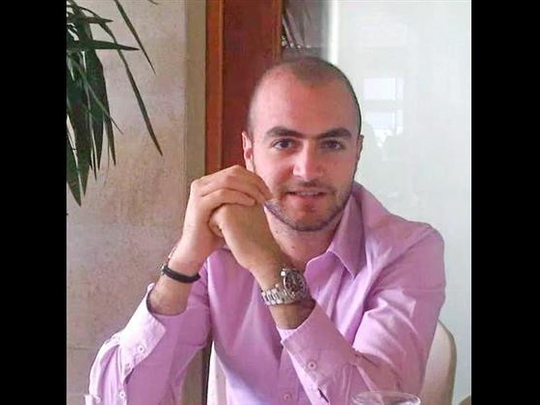
Beirut: A sequel of the civil war that scarred at least 2 generations, Lebanon’s once independent judiciary, which was further emasculated during the three-decades long Syrian occupation, fell victim to sectarian and political divisions that severely limited its effectiveness. In the current chaotic atmosphere that witnessed a steady increase in unheard of criminal activities, what rose to the surface was the powerlessness of overwhelmed authorities, handicapped by influential political entities that further weakened the institution.
It took the Lebanese judiciary thirteen days to arrest and charge six individuals accused of killing Yves Noufal on January 9, 2015. Amid a rarely seen public outcry that expressed outrage at the cavalier fashion with which authorities assumed their law and order responsibilities, yet another murder joined the long list of such crimes that periodically shook the nation, even if the deed was neither unique nor particularly egregious. On Wednesday, the public prosecution announced that “twelve arrest warrants were issued for those involved in the Kfardebian crime,” 6 for those in custody and 6 others on the run although few anticipated dramatic changes anytime soon.
On June 10, 2013, Hashim Al Salman a Lebanese Option Party (LOP) student leader was shot and killed in broad daylight near the Iranian embassy in Beirut, in a scuffle between supporters of Hezbollah and protesters. At the time, LOP demonstrators were holding a sit-in to protest Hezbollah’s involvement in the Syrian civil war, when around 50 people joined in the protests. Although police and army units pursued the person(s) who opened fire—tape recorded by various cameras—ostensibly to detain and hand them over to the competent judicial authority, no arrests were ever made.
The case of Myriam Achkar was equally baffling. Achkar, a 28-year-old woman, was raped and murdered by a psychopath who happened to be working at the Convent where she went to pray on December 14, 2012. The murderer, Fathi Jaber Al Salatin, a Syrian national who was arrested, tried, and found guilty. He received the death penalty for the premeditated murder but his case lapsed and the order was not carried out as of this writing.
Many similar cases filled the dockets with little prospect for any immediate application of the law. Instead, prosecutors went about their business, investigated, collected evidence, and awaited the judiciary and the executive to act.
Given Lebanon’s preoccupations with security lapses, priorities were not always clear, but even in those instances when cases were somewhat clear, justice was often delayed, which meant that it was denied. In early August 2012, a pro-Syrian former Member of Parliament and Cabinet Minister, Michel Samaha, was arrested “for security reasons,” allegedly because he was involved in bringing explosives into Lebanon with the help, or on behalf of, Ali Mamluk, the Syrian Security Chief who wished to add to the country’s misery by igniting fresh sectarian tensions. Samaha remained incarcerated as of this writing with no indication as to when the ongoing investigation pertaining to his case would be completed. No one in Lebanon expected to see him tried or punished.
Under the circumstances, and inasmuch as Beirut faced serious security and political challenges, it was critical to ask whether the country could restore the independence of its judiciary before long, if for no other reason than to allow citizens to have hope. Many were doubtful. Others were fearful. Most were persuaded that lack of justice meant lack of statehood.











